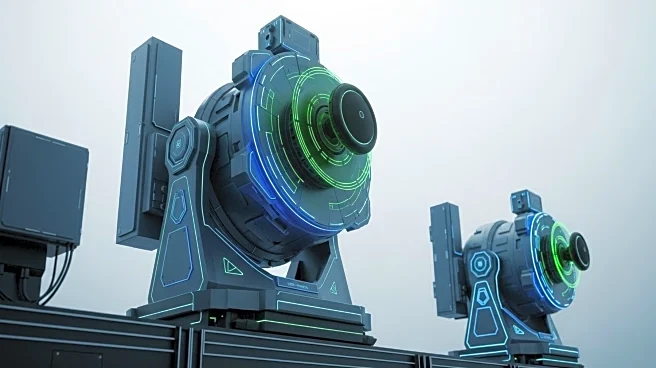What's Happening?
Raytheon Technologies has been awarded a $1.7 billion contract by the U.S. Army to produce a new missile defense sensor, which will replace the current Patriot system's radar. This contract modification allows Raytheon to build low-rate production Lower Tier Air and Missile Defense Systems, bringing the total contract value to $3.8 billion. The estimated completion date for low-rate production is the end of 2029. The radar is a key modernization element for the Army's Integrated Air and Missile Defense system, alongside a modernized command-and-control capability known as the Integrated Battle Command system. Raytheon was initially awarded a contract in 2019 to deliver prototypes over five years, and the sensor has undergone extensive testing to ensure readiness.
Why It's Important?
This development is significant as it underscores the U.S. Army's confidence in Raytheon's advanced 360-degree integrated air and missile defense capability. The contract highlights the need for improved defense systems amid increasingly complex threat tactics. The modernization of the radar system is crucial for maintaining national security and enhancing the U.S. military's defense capabilities. Additionally, the contract involves foreign military sales, with Poland being the first international customer, indicating the global demand and strategic importance of the system.
What's Next?
Raytheon is ramping up production to meet the growing demand from the U.S. Army and international partners. The Army plans to conduct initial operational tests and evaluations in the fourth quarter of fiscal 2026, with full-rate production expected by 2028. The LTAMDS system has been sent to Guam for further evaluation, and efforts are underway to accelerate production time from 40 months to 36 months. The ongoing collaboration between the Army and Raytheon, along with supply chain management improvements, aims to achieve these production goals.
Beyond the Headlines
The contract reflects broader geopolitical dynamics, as the U.S. strengthens its defense capabilities in response to evolving global threats. The involvement of international partners like Poland highlights the system's role in fostering military alliances and enhancing collective security. The modernization of defense systems also raises ethical considerations regarding the balance between technological advancement and the potential for increased militarization.










